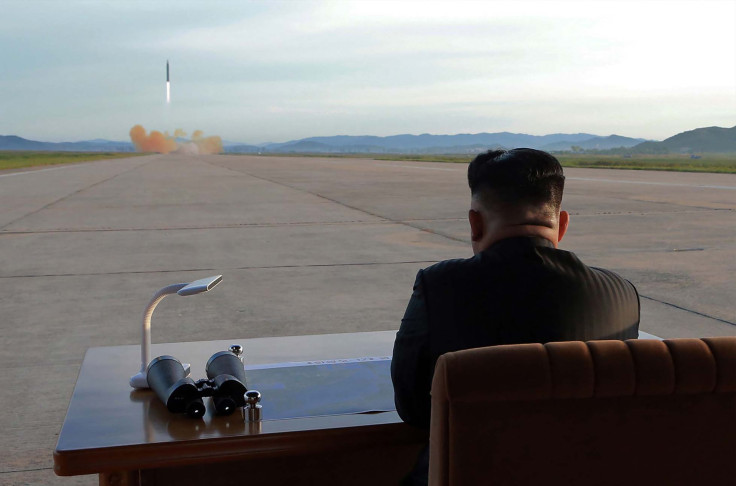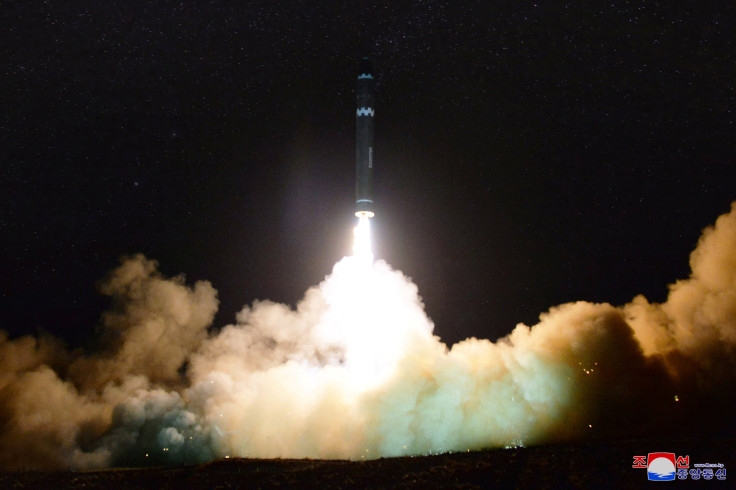US, China Quietly Prepare For North Korean Collapse, Securing Their Nuclear Weapons

The United States and China appear to be quietly preparing for the possibility of an internal collapse in North Korea.
Secretary of State Rex Tillerson spoke about the possibility of Kim Jong Un’s regime falling apart at an Atlantic Council event Tuesday. Tillerson highlighted the importance of securing North Korea’s nuclear weapons.
“If that unleashed some kind of instability, the most important thing for us to do would be securing those nuclear weapons they've already developed and ensuring that they — that nothing falls into the hands of people who we would not want to have it,” said Tillerson.
North Korea has conducted six nuclear weapons tests, including what the country claimed was a hydrogen bomb test in September. U.S. intelligence estimates that North Korea could have a stockpile of around 60 nuclear weapons, though some experts believe the number to be much smaller. By comparison, the U.S. has close to 7,000.
Tillerson said that he had engaged with China on a strategy of securing North Korea’s nuclear arsenal in the event of a collapse.
A leaked internal document from China’s state-owned telecommunications company showed that the country is planning several refugee camps along its border with North Korea in the event that the country falls apart, according to the New York Times. It also appears that construction on housing for some of the sites has already begun.
Tillerson also warned about the possibility of North Korea selling nuclear weapons to other countries or non-state actors.
“The past behavior of North Korea, it's clear to us that they would not just use the possession of nuclear weapons as a deterrent. This would become a commercial activity for them, because we already see elements of it in the commercial marketplace,” said Tillerson.
North Korea has shown signs of internal weakness before. A famine in the 1990s caused a spike in defections. A recent spate of presumed North Korean ships and sailors, some dead, washing up on Japan’s shore could be a sign of lean economic times in the country.
The United Nations sent an envoy to North Korea following the country’s November test of an intercontinental ballistic missile. Under-Secretary-General for Political Affairs Jeffrey Feltman told reporters Tuesday he hoped for a negotiated peace with North Korea.
“I think we've left the door ajar,” said Feltman. “I fervently hope that the door to a negotiated solution will now be opened wide.”
Tillerson also hoped that the U.S. and North Korea could begin talking “without preconditions.”
“Let's just meet. We can talk about the weather if you want,” said Tillerson on Tuesday. “We can talk about whether it's going to be a square table or a round table if that's what you're excited about.”
Tillerson’s offer appears to be a break from the bellicose rhetoric of President Donald Trump, who on Oct. 1 posted on Twitter: “I told Rex Tillerson, our wonderful Secretary of State, that he is wasting his time trying to negotiate with Little Rocket Man.”
White House spokeswoman Sarah Huckabee Sanders issued a statement after Tillerson’s comments.
“The president's views on North Korea have not changed. North Korea is acting in an unsafe way not only toward Japan, China and South Korea, but the entire world. North Korea's actions are not good for anyone and certainly not good for North Korea,” read the statement.

© Copyright IBTimes 2024. All rights reserved.











